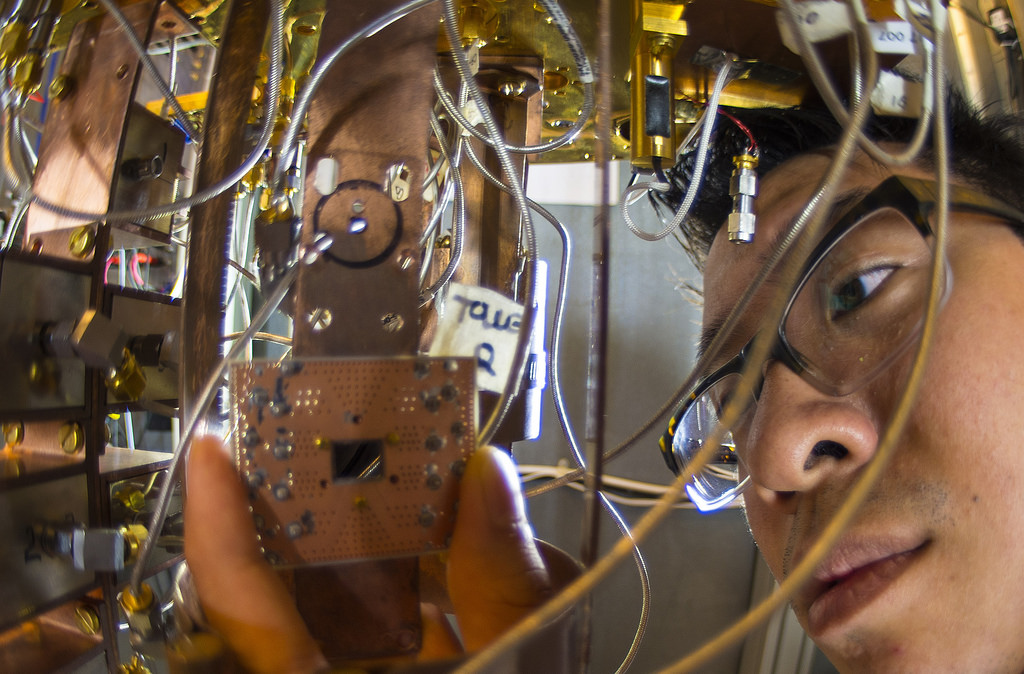I recently saw a news article on quantum computing. Since then, I’ve been trying to grasp the concept and how it works. So far, my understanding of one big difference between conventional and quantum is voltage switching. A conventional processed bit becomes so by passing through two layers of very low voltage. The area between these voltages (in which the bit cannot function) is called the ‘forbidden zone’ and is, effectively an area of process lag. It seems that (as I understand it), in quantum computing, the voltage crossover would be (almost) instantaneous, which will greatly speed up processing time. I’ve been doodling about on the internet to find these things out but you never know how accurate the info is so I’ve no idea if this supposition of mine is correct.
The next thing is to do with the fact that in quantum computing, the information (unlike standard) can be 1 or 0. I’m kind of grasping the idea that having no defined value will greatly enhance processing because it will not be constrained to specific paths or processes, I presume this might be where quantum entanglement might come into play...
So my next question is: during quantum computing, to reach a desired goal, surely there must come a point in the process where a bit must have a defined value (either 1 or 0) for the application to work correctly?
Of course, It’s possible that I’ve completely misunderstood how this will work and, for some reason, it’s bugging me.
The next thing is to do with the fact that in quantum computing, the information (unlike standard) can be 1 or 0. I’m kind of grasping the idea that having no defined value will greatly enhance processing because it will not be constrained to specific paths or processes, I presume this might be where quantum entanglement might come into play...
So my next question is: during quantum computing, to reach a desired goal, surely there must come a point in the process where a bit must have a defined value (either 1 or 0) for the application to work correctly?
Of course, It’s possible that I’ve completely misunderstood how this will work and, for some reason, it’s bugging me.




